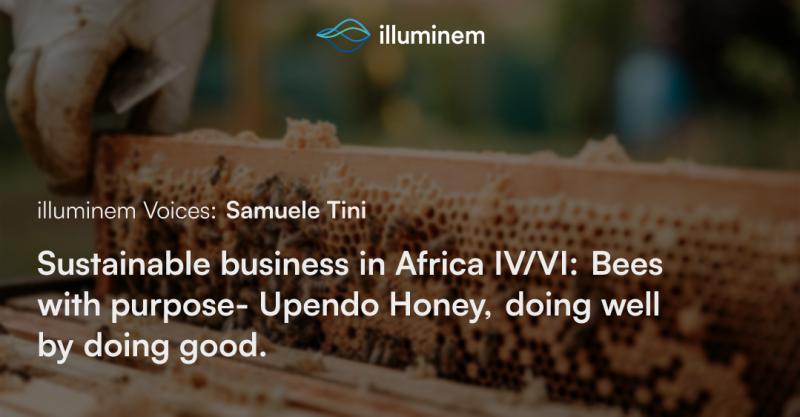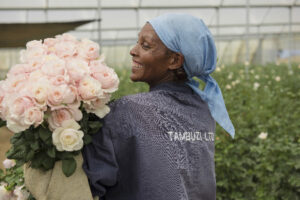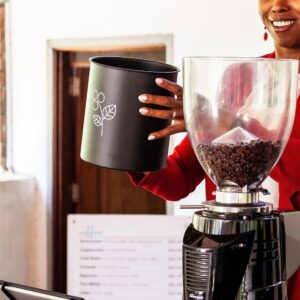By Samuele Tini, Host of The Sustainability Journey podcast
This is part four of a six-part series on sustainable business practices in Africa. You can find part one here, part two here, part three here, and part five here.
We continue our journey to explore real sustainability business cases in Africa in collaboration with B Lab Africa.
Global market growth: The rise of organic honey
Globally, the honey market is growing, with organic honey alone forecasted to reach an overall value of 1 billion USD by 2025 (Figure 1).
The installed capacity is also increasing, surpassing 92 million beehives worldwide (Figure 2). The leading countries for installed capacity are India and mainland China. In Africa, Ethiopia and Tanzania stand out as leading countries, with an excess of 6 million and 3 million beehives installed, respectively. Ethiopia ranks among the top 10 producers, producing 50 TMT (thousand metric tons) of honey.
Beekeeping for development: Unlocking opportunities in Africa
Honey in East Africa is often produced in rural areas with lower Poverty and Human Development Indices, thus increasing the potential for beekeeping to improve livelihoods in marginalized communities (Warui et al., 2018; Affognon et al., 2015). In addition, the beekeeping sector provides ecosystem services to several crops in the agriculture sector and plays a vital role in enhancing conservation and forest preservation (Langat et al., 2016; McMenamin et al., 2017; Zocchi et al., 2020). The market structure is organized with different layers, with a large base of smallholder producers, mainly atomized and capturing the lowest value in the chain. They often receive low prices and have limited capacity to improve their equipment and quality.
Upendo honey: A model for sustainable enterprise
How can enterprises play a role that enhances conservation, improves livelihoods, and has a sound business outlook? A certified B Corp, Upendo Honey in Western Tanzania, is a perfect case study of effective intervention by a social for-profit enterprise. Upendo Honey falls into the category of hybrid enterprise (Lenze & Parker, 2016).
After a research period in Tanzania from Australia, Alex Chetkovich, one of the three co-founders, saw an opportunity for a for-profit enterprise to contribute to development, conservation, and livelihoods, traditionally the realm of NGOs. Alex is coming from that world, but in his words, he wanted “to do something which was a little bit more financially sustainable but still have that sort of impact focus as well.”
Therefore, they wanted to go beyond a traditional not-for-profit project with small village aggregation centers and build a company that could impact thousands of farmers. Their business model is simple yet challenging: aggregate, certify, and export. And he says, “On each of those things—aggregating, certifying, and exporting—there was a barrier you needed to get over in terms of financial resources but also organizational capacity.”
They currently source from more than 3,500 small-scale farmers in protected areas. “We work with district beekeeping officers… to help protect those forests but also… make sure that the people living nearest to the forest are earning their highest return.”
They source from game reserves, forests, and highly critical areas, promoting so-called non-timber forest products, such as honey. There have been several studies and ups and downs (Lowore et al., 2018); however, critical success factors among all are sustainable prices.
Driving impact: Strategies for sustainable value chains
Upendo Honey addresses the needs of beekeepers, which often include equipment and training. To improve quality, they make high-quality equipment available for farmers on credit and at cost, payable in honey. One common problem is the “smoky flavor” due to inadequate harvesting equipment, which this provision solves.
Secondly, Upendo addresses the issue of financing. Honey is a seasonal product, but farmers need finance to collect, maintain, and achieve financial stability. Upendo pre-finances up to 10% of the crop in advance to enable farmers to collect and sustain their income.
Thirdly, they tackle the problem of payment. Due to seasonality, prices often fluctuate, and farmers receive low payments during the season. Upendo ensures a win-win relationship with its suppliers by setting prices at the start of the season and consistently offering the highest price for honey in Tanzania, particularly in the regions where they buy. The premium paid is 30% to 80% more than the market price.
They can offer higher prices because their factory in Kigoma is more efficient in extracting honey from raw combs, above 85%, compared to an average of 65%. To ensure prompt payments, they pay in a timely manner and use mobile money to reach each farmer directly. The contracts are one-sided, allowing farmers to sell to other buyers. Still, these fair trade practices significantly reduce the risk of side selling and ensure a constant and reliable supply.
The honey is US and EU organic certified, and farmers receive training to improve quality and receive a premium. As mentioned, the honey is sourced from protected areas, including game reserves and forest reserves, enabling the monetization of forests to benefit local communities and encourage conservation. Upendo plays a critical role in preserving Tanzania’s natural landscapes by aligning beekeepers’ interests with environmental protection.
It is not surprising that Upendo ranks in the top tier in its overall B Impact score. For Alex, B Corp certification has been a significant achievement, reflecting his beliefs and values as a purpose leader. B Corp serves as a significant differentiation, with just 64 in Africa, signaling Upendo’s impact and their way of doing business. For consumers and buyers, it enables Upendo to have “a cherry on top,” demonstrating its impact from a social and environmental point of view.
In his plans, there is the improvement of the Farmers Resources Hub, their collection points in the communities, to improve the availability of materials even at the village level, and to increase the number of beekeepers. His mission for the future is clear: “Adding one more marginal beekeeper is the easiest way to have additional impact.” This case demonstrates how sustainable and impact-focused businesses can create tangible benefits for local communities and the environment, even in rural and remote areas.
illuminem Voices is a democratic space presenting the thoughts and opinions of leading Sustainability & Energy writers, their opinions do not necessarily represent those of illuminem.





